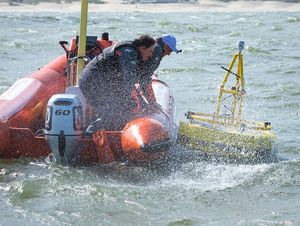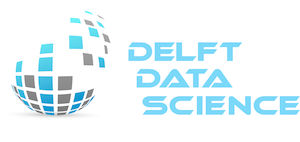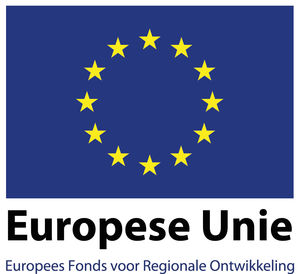Subsidy for making the ‘smartest part of the North Sea’
An advanced test area of 10 x 10 nautical miles (= about 185 football pitches) is planned for off the coast of The Hague, just outside the port of Scheveningen. This area is unique in the world. It is within this ‘smartest stretch of the North Sea’ that the likes of Delft Data Science (DDS) researchers Anna Vilanova and Elmar Eisemann will get the chance to further their research.
Anna Vilanova and Elmar Eisemann are part of the Computer Graphics and Visualisation group at Delft University of Technology and as researchers are associated with the Delft Data Science's sport roadmap via this project. The group explores rendering, visualisation of big data and 3D modelling. It develops new algorithms to generate, represent, interpret, visualise and interact with data.
Anna Vilanova is part of the team that will be developing a sailing coach cockpit. The job of this sailing boat coach is to give professional sailors direct feedback during training. This will involve the use of various sources of information on the water, such as currents, wind levels and wave heights, to better understand the sailor's behaviour with a view to boosting his performance. Sensors are still rarely used in sailing. Sailors receive feedback from the coach about their performance only after returning to shore at the end of a training session. This is because everything is observed with the naked eye, as sailing tends to use a traditional approach.
But this new technique uses data analysis to improve the sailor's performance on the spot. Compare it to a swimming coach who, thanks to video, analysis and feedback, can see immediately how a swimmer should change his position or technique. Elmar Eisemann will be creating the competition of the future. A sailing competition takes place a fair distance out on the water, making it difficult for spectators on shore to see what's going on. Using computer graphics, images of the sailors will be beamed back to shore, even making use of 3D technology. This will make spectators feel like they are far more involved in the competition. These research projects will enable sailing to pull in a larger audience, thus benefiting economic activity in the region of The Hague (for example more tourism during sailing events).
The European Union is contributing 1.7 million euros via the ‘Opportunities for West’ programme. The total project will run for four years. The project came about via intensive cooperation with Delft University of Technology, Sailing Innovation Centre, TNO, KPN, Svasek Hydraulics, the Dutch Water Sport Association and the City of The Hague.
For further information about the project or DDS, please contact DDS programme manager Marije Wassenaar at m.a.wassenaar@tudelft.nl


